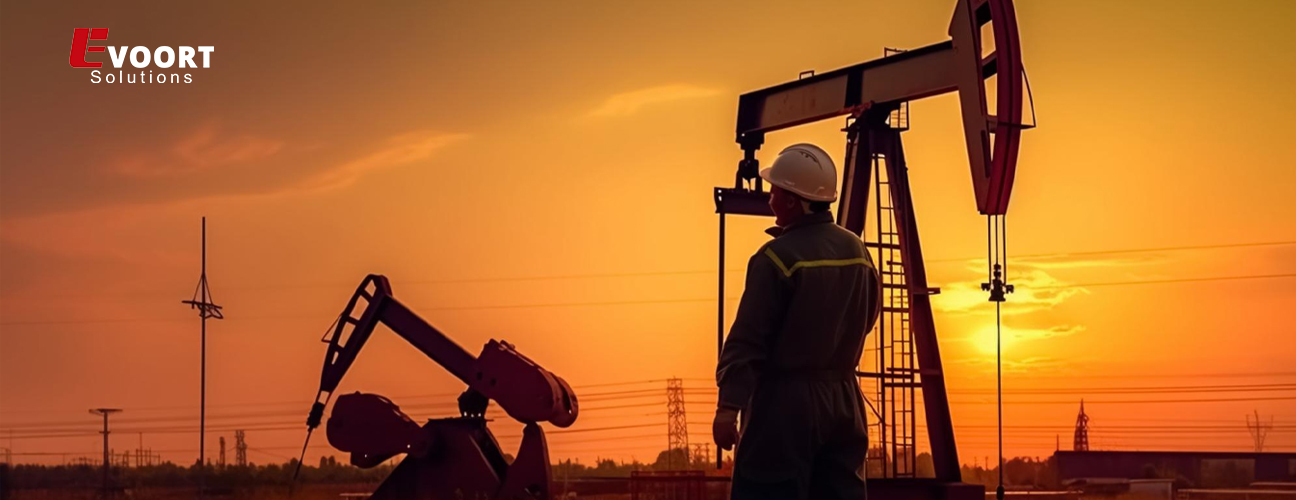
IoT-powered Solutions for the Oil and Gas Industry: Addressing Challenges
Table of Contents
The rapid evolution of technology has significantly impacted various industries, prompting a shift towards data-driven approaches. In particular, the widespread adoption of Internet of Things (IoT) solutions for oil and gas industry has revolutionized how businesses operate, leveraging real-time data insights to enhance efficiency and productivity. Within the oil and gas sector, IoT technology has emerged as a critical enabler, offering innovative solutions to address the industry's unique challenges and improve operational performance.
Key Segments Covered by IoT-powered Oil and Gas Business Solutions
1. Asset Monitoring and Management:
Challenge: Oil and Gas companies often operate in remote and hostile environments, making it challenging to monitor the condition and performance of critical assets such as wells, pipelines, and drilling equipment.
Solution: Deploying IoT sensors and devices throughout the infrastructure enables real-time data collection on asset health, facilitating predictive maintenance and preventing costly breakdowns.
2. Safety and Environmental Monitoring:
Challenge:Ensuring the safety of workers and preventing environmental disasters is paramount in the oil and gas industry.
Solution:IoT sensors can detect safety hazards such as leaks and gas emissions, providing immediate alerts to mitigate risks and minimize environmental impact.
3. Supply Chain Optimization:
Challenge: Managing logistics in remote locations can be inefficient and costly.
Solution: IoT-driven logistics platforms offer real-time tracking of shipments and workforce, optimizing routes and reducing operational costs.
4. Energy Efficiency:
Challenge:Energy consumption constitutes a significant portion of operational expenses.
Solution:IoT-enabled devices and analytics optimize energy usage, reducing waste and implementing predictive maintenance strategies.
Benefits of IoT- powered Solutions
Improved Operational Efficiency
Real-time monitoring and data-driven decision-making enhance operational efficiency, reducing downtime and improving productivity.
Cost Reduction
Predictive maintenance and optimized resource allocation lead to substantial cost savings by minimizing unplanned downtime and energy waste.
Enhanced Safety and Compliance
Real-time monitoring of safety hazards ensures a safer work environment and compliance with regulatory requirements.
Environmental Sustainability
IoT solutions contribute to reduced environmental impact by promptly detecting and addressing leaks and emissions.
Challenges and Solutions
1. Data Security and Privacy:
Challenge: With the vast amounts of sensitive data generated, data security is a significant concern.
Solution: Implementing robust encryption and access controls safeguards data from cyber threats.
2. Integration Complexity:
Challenge: Integrating IoT solutions with existing infrastructure can be complex and costly.
Solution: Adopting a phased approach to integration minimizes disruptions and scalability issues.
3. Interoperability:
Challenge: IoT devices from different manufacturers may not communicate seamlessly.
Solution: Standardization and open communication protocols enhance interoperability among IoT devices.
Conclusion
IoT-powered solutions by Evoort Solutions are transforming the oil and gas industry by addressing critical challenges and delivering a multitude of benefits. From asset monitoring to supply chain optimization, these solutions drive efficiency, reduce costs, enhance safety, and promote environmental sustainability. While challenges such as data security and integration complexity persist, ongoing innovation and collaboration within the industry are expected to overcome these obstacles, paving the way for a connected and efficient future in the oil and gas sector.
